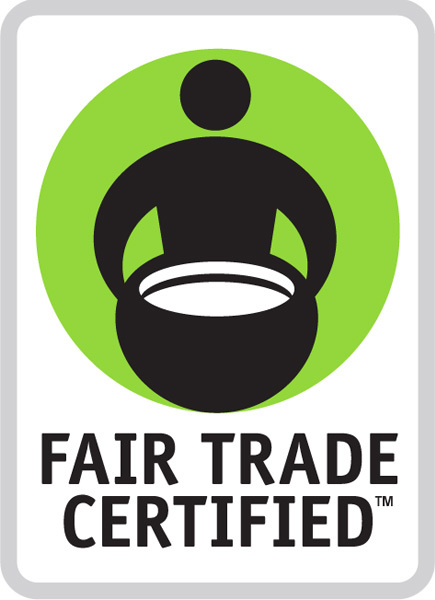New Mother’s Day Campaign Celebrates the Inspirational Women of Fair Trade
Fair Trade Certified gifts of chocolate, roses, tea and coffee improve the lives of moms around the world
April 25, 2013 /3BL Media/ - Celebrating Mother’s Day this year can bring added rewards when shoppers honor mothers from around the world through their Fair Trade purchases. To promote the many ways that Fair Trade benefits mothers, Fair Trade USA, a nonprofit and the leading third-party certifier of Fair Trade products, today launched a new campaign, Moms Make a World of Difference.
During the weeks leading up to Mother’s Day, which falls on the same weekend as World Fair Trade Day (May 11-12), families are encouraged to “Celebrate Mother’s Day the Fair Trade Way” by giving mothers gifts, such as chocolate and roses, that feature the Fair Trade Certified label. This label helps ensure that the farmers and workers who grew the products worked in safe conditions, protected the environment, and earn Community Development Premiums to reinvest back into their communities.
The campaign features six mothers who represent the women who grow and harvest Fair Trade Certified coffee, tea, chocolate, roses and sugar. The women’s inspirational stories will be highlighted on Fair Trade USA’s website and Facebook page from April 25 to May 12. In addition to a beautiful gallery of photos from Fair Trade farms, the new website features discounts for dozens of Fair Trade Certified products and a collection of delicious Fair Trade recipes.
The featured Fair Trade mothers include Maria Elva Correa Torres of Peru, who dreams of using the income from her Fair Trade coffee to start a small grocery business at the Sunday market, and Elvia Almachi, a rose farmer in Ecuador who is earning her high school diploma at the adult school that was funded by Fair Trade Premiums. “It’s through these Fair Trade flowers that hundreds of families, like mine, continually improve our lives,” Almachi explained.
Women in developing countries are a critical part of the workforce that brings us products we enjoy every day, and they encounter more challenges than men:
- Women wage workers dominate employment in areas of export-oriented, high-value agriculture in the developing world. For instance, women represent 75% of banana pickers in Kenya, 70% of flower growers in Colombia, and 90% of Mexican produce pickers.1
- In developing countries, women tend to work longer hours than men. In Asia and Africa, studies have shown that women work as much as 13 hours more per week.1
- In most countries, there is a 5%-10% disparity in the percentage of female-headed households who access credit compared to their male-led counterparts.1
- Of the 775 million adults who cannot read or write, two-thirds of them are women.2
- The maternity mortality rate in developing countries is 15 times higher than that of developed countries.3
Fair Trade certification is a critical tool for empowering women across the globe to overcome these challenges. It currently benefits women in numerous ways, including:
Economic Empowerment: Women are paid fairly and directly for their labor, not through an intermediary such as their husband or brother. Fair Trade premiums have also been used to fund micro-loans for women to start their own businesses.
Education: Fair Trade promotes equal access to adult education for women and men, and supports initiatives to close the gap between boys’ and girls’ school enrollment and completion levels.
Health & Safety: Fair Trade standards promote health and safety for women, including requiring maternity leave on full pay; prohibiting any work that causes a health hazard during pregnancy or while nursing; and prohibiting sexual harassment.
***
Note: Mother’s Day graphics and photos are available for use in articles and blog posts. They can be downloaded here: http://fairtradeusa.org/resources/campaigns/mothers-day-2013.
Fair Trade USA, a nonprofit organization, is the leading third-party certifier of Fair Trade products in North America. Fair Trade USA audits and certifies transactions between companies and their international suppliers to ensure that farmers and workers were paid fair prices and wages, work in safe conditions, protect the environment, and receive community development funds to empower and improve their communities. Fair Trade USA also educates consumers, brings new manufacturers and retailers into the Fair Trade system, and provides farming communities with tools, training and resources they need to thrive as international businesspeople. Visit www.fairtradeusa.org for more information.
1 Food & Agriculture Organization of the United Nations








